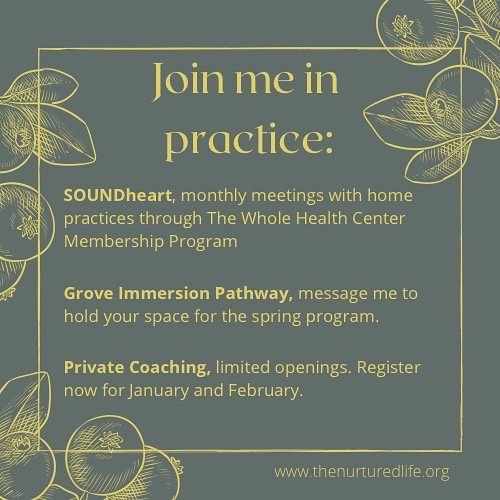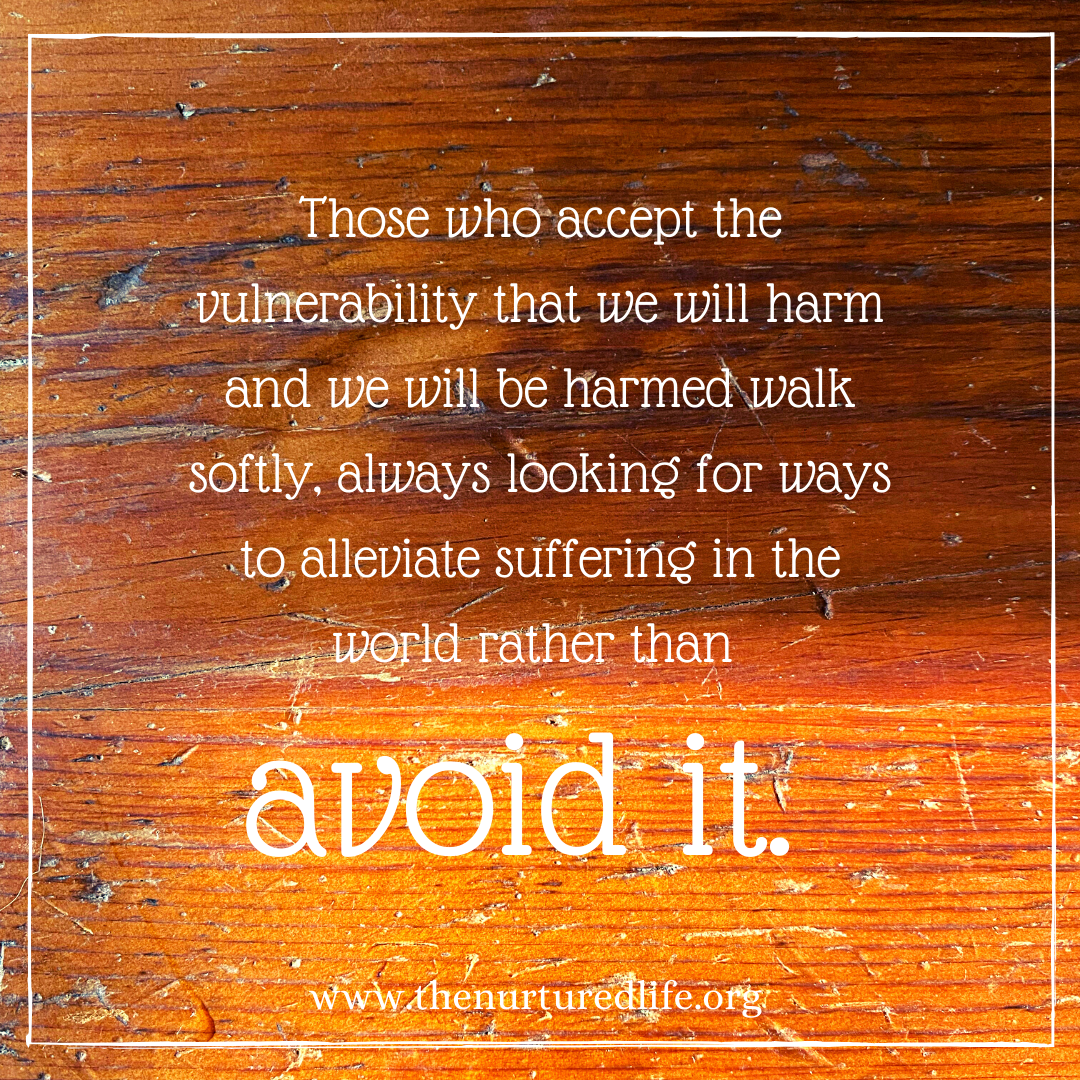For me, my personal practice is grounded in my commitment to the whole. My personal practice is grounded in my commitment to be of service. In order to maintain my moral courage and emotional integrity in trying times, I work to prepare for hardship. Not in a pessimistic "life is hard" kind of way, more in a relevant reciprocal communication kind of way. Being present with the world right now calls me to be aware that there is a need to prepare my body, mind, and spirit to manage difficult things. So, that is what I do. And I can do that in joy and with joy because my practice also supports me holding the infinite vastness of emotions, together.
We do a lot of work to support ourselves in this way at The Whole Health Center, but the SOUNDheart program has this as the defining purpose. The SOUNDheart program offers a space for practicing integrative practices in connection with our grief and anticipatory grief related to the trying times we are living and the days to come. If you worry about the days to come, this program is for you. I hope you will join us this Sunday at 4pm. We always gather for discussion, a guided meditation practice, and some take home practices for the coming month. This week I will offer one of my favorite guided meditations, one I think will give us something to hold and work with as we navigate Spring.
SOUNDheart is a part of The Whole Health Center's membership program. Members have access to the link through the membership page. More about membership
With Love and Gratitude,
Sherene
Additional resources for the slides above:
Yawning:
For more information on the benefits of yawning reference the work of Andrew Newberg and Mark Robert Waldman
Jump, Stomp, Swing:
Example of quick movement activity here https://vimeo.com/374379276
Sense of Connection:
Access the Everyday Spirituality Tool from The Nurtured Life https://static1.squarespace.com/static/55aedb4fe4b0f3d81650f710/t/5a969f6671c10b4fee4e6c96/1519820646743/experiencing+spirituality+everyday.pdf












